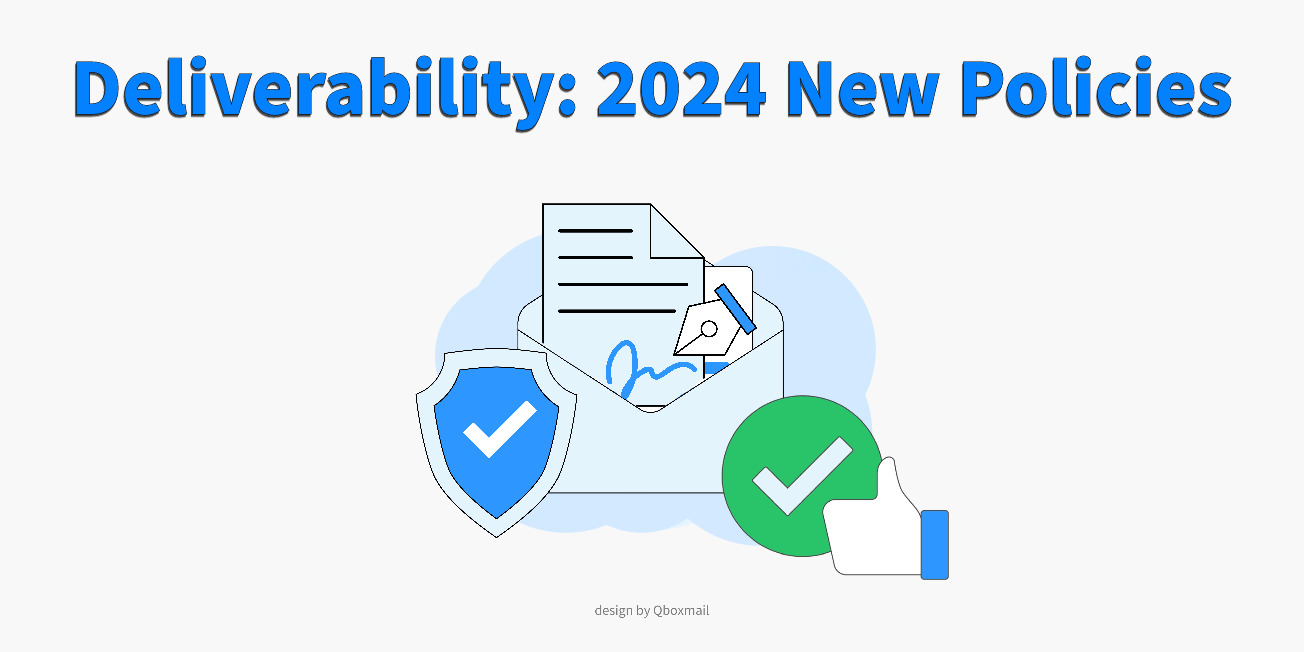Deliverability 2024: new policies required to avoid ending up in spam

We are sure that you have already read many guides explaining why messages might not reach their destination, but the rules for ending up in the inbox change frequently. In this article, we will explain the innovations that will be introduced from February 2024. Email deliverability is a crucial part of corporate communication.
Avoiding your emails being classified as spam requires a careful approach to security and the presentation of the message content. We introduced the topic in the post about the release of the new Email Delivery Service, anticipating that from 2024, Google and Yahoo will update their policies for the correct deliverability of email messages, turning the principle of ‘No Auth, No Entry’ into a universal rule.
Fundamental Requirements for 2024
- Implement DMARC:
The domain visible in the “From:” header of messages must have an existing DMARC policy record in DNS. Currently, the p=none policy is sufficient. - Adhere to SPF and DKIM:
Emails sent to these providers, and beyond, must be sent using domains in the Return-Path with a valid SPF record, and messages must be signed with DKIM. - Send with aligned “From:” domain:
The domain visible in the “From:” header must be aligned with the domain of the DKIM signature or the SPF domain, preferably both. The M3AAWG association strongly recommends aligning with a DKIM signature domain to reduce the risk of an SPF Upgrade Attack, where a domain with a too permissive SPF record can be successfully counterfeited under certain conditions. - Valid forward and reverse DNS:
Emails must be sent from IP addresses with valid PTR records, and these PTR records must resolve to host names that resolve back to the IP address. This is also called “Forward-Confirmed Reverse DNS” or “FCrDNS” for short: IP → rDNS → IP. - One-click Unsubscribe:
Commercial emails must have the functionality of one-click unsubscribe, and, in general, should not require effort from users. - Low spam rate:
A spam rate reported by users below 0.3% is the required threshold.
Google and Yahoo Alignment
By the way, Google and Yahoo are not introducing anything new; simply, they are aligning themselves, following the existing best practices that it would be advisable to adhere to in order to respect your recipients and ensure successful email delivery. These rules are already part of Qboxmail’s criteria; that’s why we have built the Email Delivery service on the principle of “No Auth, No Entry.“
The use of DKIM signatures and the application of these requirements, are opportunities to enhance the email communication experience.
With the implementation of new policies, it’s possible to add value to each recipient and create a more reliable and effective email ecosystem for both senders and receivers.
If you oversee an email delivery platform, an ESP (which allows sending marketing emails to a list of subscribers), or a CRM, it’s essential to empower all clients to implement authentication correctly and ensure robust support for the List-Unsubscribe header. If the messages you send are not well-received by recipients, there’s a high risk of losing customers, along with the potential compromise of the IP reputation.
Improve Email Delivery: a thoughtful and effective approach
In summary, to maximize the probability of success in email delivery, it’s essential to pay careful attention to key elements such as DKIM digital signatures, SPF rules, IP reputation, and content quality.
The DKIM (DomainKeys Identified Mail) signature plays a fundamental role in this context, by offering an advanced level of sender authentication, thereby enhancing the security of email transmission and reception.
Investing in email deliverability not only enhances the effectiveness of your business communication, but also contributes to building trust among recipients and maintaining a reliable online presence for your company.



